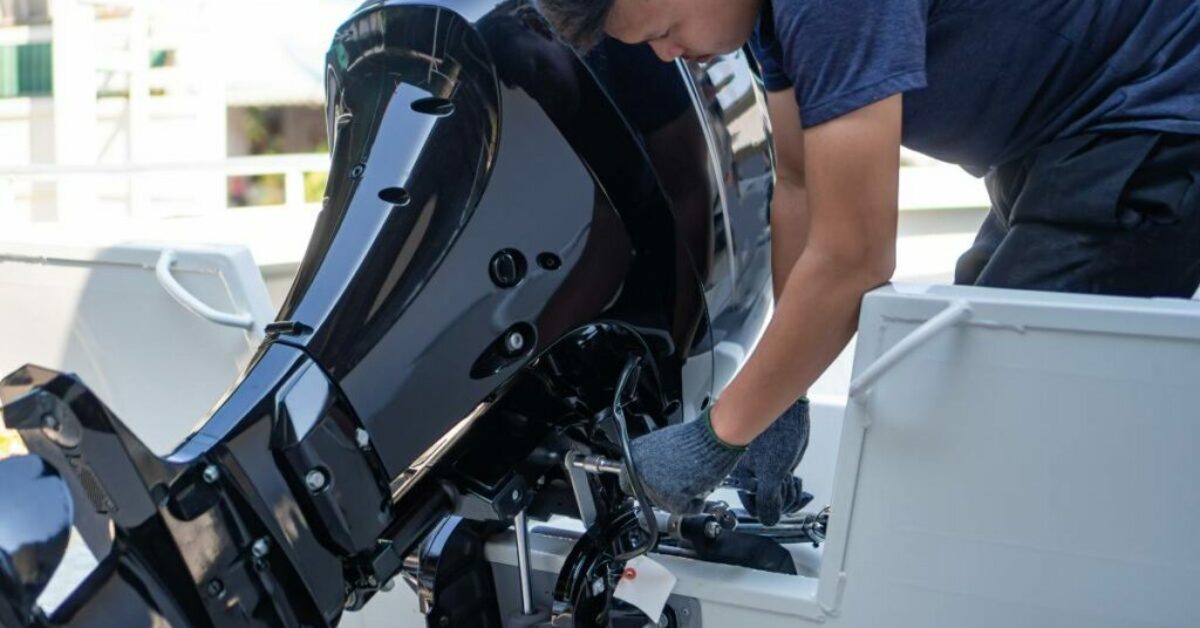How To Become A Boat Mechanic?
If you love boats and are mechanically inclined, becoming a boat mechanic may be the perfect career for you. Boat mechanics, also known as marine technicians, are responsible for repairing and maintaining boats of all types, from small recreational boats to large commercial vessels. In this article, we will discuss the steps you need to take to become a boat mechanic, the skills required for the job, what a boat mechanic does, and the benefits of working in this field.
Steps To Becoming A Boat Mechanic
Each state may have additional requirements for licensing or certification, so it is important to check the regulations in your area.
If you have a passion for boats and enjoy working with your hands, becoming a boat mechanic can be a fulfilling career choice. Not only will you be able to work on boats, but you will also have the opportunity to work with boat owners and enthusiasts who share your passion.
To become a boat mechanic, you will need to follow these steps:
- Get a high school diploma or equivalent
Before embarking on this career path, it is important to have a solid educational foundation. This starts with obtaining a high school diploma or equivalent. This will provide you with the basic knowledge and skills needed to succeed in a marine technology program.
- Gain experience repairing boats as a hobby or work as an apprentice to a boat mechanic
While in high school, you can gain experience repairing boats as a hobby. This can be a great way to learn the ins and outs of boat mechanics and gain valuable experience that can be applied to your future career. Alternatively, you can work as an apprentice to a boat mechanic to gain hands-on experience and learn from a seasoned professional.
- Enroll in a marine technology program at a vocational school or community college
After obtaining your high school diploma or equivalent, it is time to enroll in a marine technology program at a vocational school or community college. These programs will provide you with the knowledge and skills needed to work on boats of all types and sizes. You will learn about engines, electrical systems, and other important components of boats.
- Gain hands-on experience working with different types of boats through internships or employment
While in school, it is important to gain hands-on experience working with different types of boats. This can be accomplished through internships or employment at a boat repair shop. By working with different types of boats, you will gain a better understanding of how they work and what problems they may encounter.
- Obtain certification from the National Marine Manufacturers Association (NMMA) or American Boat and Yacht Council (ABYC)
Once you have completed your marine technology program, it is time to obtain certification from the National Marine Manufacturers Association (NMMA) or American Boat and Yacht Council (ABYC). These certifications demonstrate to potential employers and customers that you have the knowledge and skills needed to work on boats safely and effectively.
It is important to note that each state may have additional requirements for licensing or certification. Be sure to check the regulations in your area to ensure that you are in compliance with all requirements.
Becoming a boat mechanic can be a challenging, yet rewarding career choice. With the right education, experience, and certification, you can enjoy a fulfilling career working on boats and helping boat owners keep their vessels in top condition.
Skills Needed For Becoming A Boat Mechanic
Becoming a boat mechanic can be an exciting and rewarding career choice for those with a passion for working with their hands and a love for boats. However, it is important to have a solid foundation of skills and knowledge in order to succeed in this field.
One of the most important skills for a boat mechanic is experience with hand tools and power tools. These tools are essential for repairing and maintaining boats, and a good mechanic should be comfortable using them to diagnose and fix problems.
In addition to mechanical skills, a boat mechanic should have a basic knowledge of electrical and fuel systems. Boats rely on these systems to function properly, and a good mechanic should be able to troubleshoot and repair any issues that arise.
Another important area of knowledge for boat mechanics is an understanding of hydraulics and air systems. These systems are used in many different parts of a boat, from steering to winches, and a good mechanic should be able to diagnose and repair problems with these systems as well.
Being able to read and interpret technical manuals and schematics is also a crucial skill for boat mechanics. These documents provide important information about the structure and function of boats, and a good mechanic should be able to use them to diagnose and repair problems.
Finally, good communication skills are essential for boat mechanics, as they often work with customers and coworkers in a fast-paced and dynamic environment. A good mechanic should be able to explain technical issues in a clear and concise manner, and be able to work well with others to get the job done.
It is also important to note that boat mechanics often work in outdoor environments, such as boatyards or marinas, which can be exposed to the elements. Therefore, a boat mechanic should be physically fit and comfortable working in these types of conditions.
Becoming a boat mechanic requires a solid foundation of skills and knowledge in mechanics, electrical and fuel systems, hydraulics and air systems, technical manuals and schematics, and communication. With these skills, along with a passion for boats and a love for working with your hands, you can pursue a rewarding career as a boat mechanic.
What is A Boat Mechanic?
A boat mechanic, also known as marine technician, is a professional who repairs and maintains boats. They are responsible for diagnosing and fixing a variety of issues, such as engine problems, electrical system failures, and structural damage, making sure the boat is safe and functional when it goes back on the water.
Boat mechanics play a crucial role in the boating industry, as they keep boats running smoothly and safely. They work on a variety of boats, from small recreational vessels to large commercial ships. They must have a deep understanding of how boats work, as well as the ability to troubleshoot and solve complex problems.
In addition to repairing and maintaining boats, boat mechanics also play a role in ensuring that boats are environmentally friendly. They may work on boats that are equipped with emissions-reducing technology, or they may install new components that help boats run more efficiently and with less impact on the environment.
Boat mechanics often work in marinas or boatyards, where they have access to the tools and equipment they need to do their job. They may work independently or as part of a team, depending on the size of the boat and the scope of the repair job.
Boat mechanics should be experienced with a variety of tools, including hand and power tools, diagnostic equipment, and software for troubleshooting boat systems. They should also have strong problem-solving skills, as well as the ability to work well under pressure and in a fast-paced environment.
If you’re interested in becoming a boat mechanic, there are a variety of training programs available. Many technical schools and community colleges offer programs in marine technology, which can provide you with the skills and knowledge you need to start your career. Some boat manufacturers also offer training programs for their products, which can be a great way to gain specialized knowledge and experience.
The Benefits of Working as A Boat Mechanic
Working as a boat mechanic is a fulfilling career that offers numerous benefits. Here are some additional reasons why you should consider pursuing this profession:
1. Opportunity to Work Outdoors
Unlike many other professions that require you to work indoors, boat mechanics get to work outside in the fresh air and sunshine. This can be a refreshing change of pace for those who enjoy being outdoors and working with their hands.
2. Variety of Work
As a boat mechanic, you will work on a variety of boats, from small recreational boats to large commercial vessels. This means that you will encounter different challenges and learn new skills every day, keeping your job interesting and engaging.
3. Chance to Travel
Boats are not limited to a single location, and neither are boat mechanics. Working in this field can provide opportunities to travel to different marinas and boatyards, as well as to work on boats that are docked in various locations.
4. Satisfaction of Helping Others
Boat owners rely on boat mechanics to keep their vessels running smoothly and safely. As a boat mechanic, you will have the satisfaction of knowing that you are helping others and making a difference in their lives.
5. Constant Learning Opportunities
Boat technology and design are constantly evolving, which means that as a boat mechanic, you will need to stay up-to-date with the latest advancements. This ongoing learning process can be stimulating and challenging, allowing you to continually improve your skills.
Overall, working as a boat mechanic is a rewarding career that offers job security, good earning potential, and opportunities for advancement. If you have a passion for boats and a desire to work with your hands, this could be the perfect career for you!




